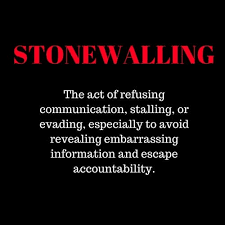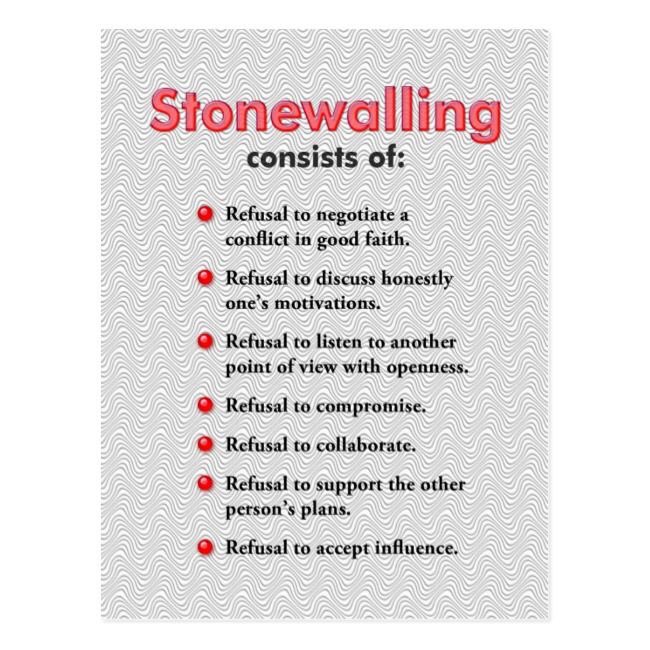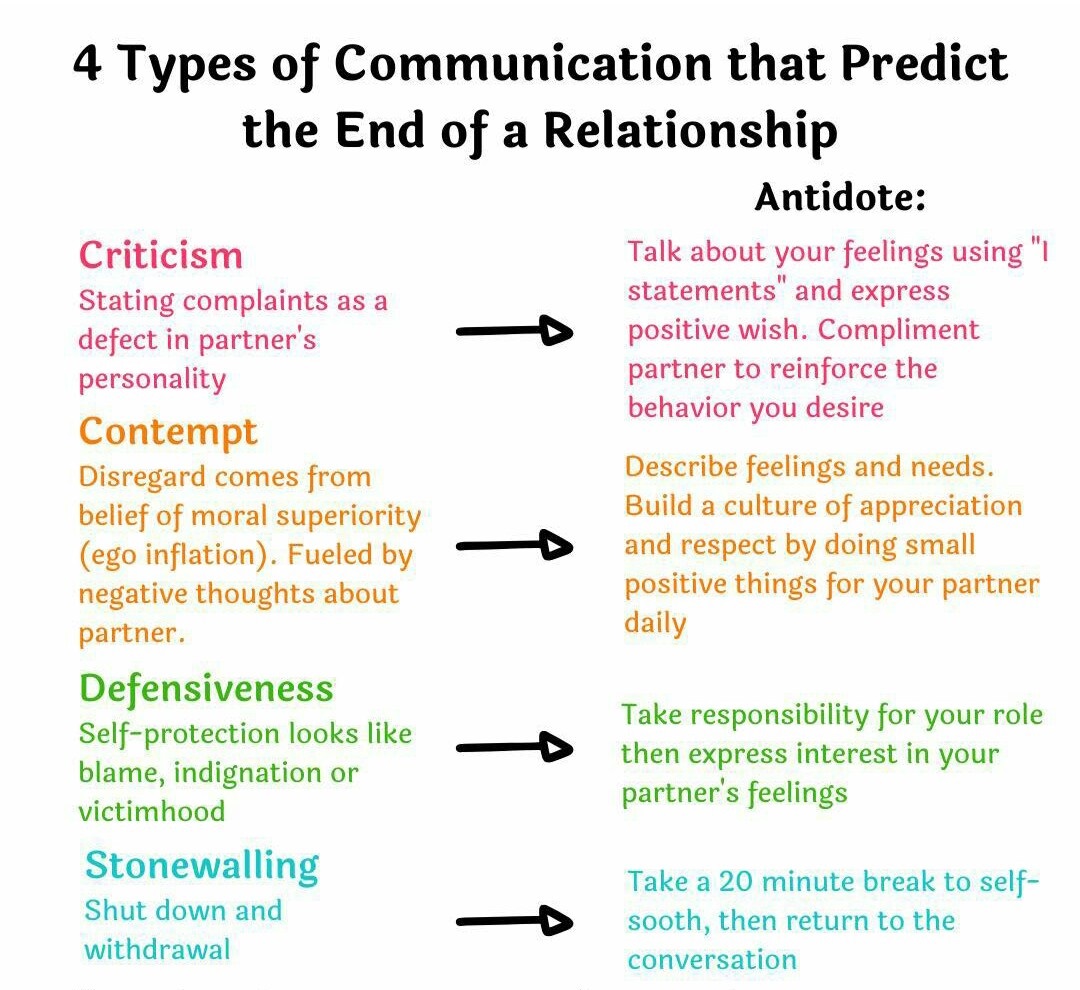Do you have someone in your life who shuts you down every time you try to communicate with them? Maybe they’re a loved one, or maybe they’re a colleague at work. Either way, it can be incredibly frustrating trying to get through to them. In this blog post, we’ll explore the phenomenon of stonewalling and provide tips and strategies for how to effectively communicate with someone who shuts you down (how to communicate with someone who shuts you down).
Contents
Understanding Stonewalling

Stonewalling is a type of passive-aggressive behavior in which a person shuts down all communication with the person or people they’re upset with. It’s often used as a way to avoid dealing with difficult emotions or situations.
You can use stonewalling as a technique for avoiding conflict in some cases though. But it’s best to avoid doing this in personal relationships whenever possible.
It is because when you stonewall someone, they feel like they can’t talk to you and that their concerns aren’t important. This can lead to frustration and resentment on the part of the other person and can damage or even end the relationship.
Stonewalling As a Defense Mechanism
Stonewalling is a defense mechanism that can be used to avoid dealing with difficult emotions or situations. It’s often played out in the interest of self-preservation and survival. For example, if someone has been betrayed by their spouse/partner, they may use stonewalling as a way to protect themselves from being hurt again.
Stonewalling can also be used as a way to avoid conflict or confrontation between two people who are angry at each other. For example, if someone’s spouse/partner has cheated on them and they don’t want to deal with it any longer, they may use stonewalling as a way of avoiding the situation altogether (communication with someone who shuts you down).
Signs of Stonewalling

There are a few common signs that someone is stonewalling you. They might:
- Refuse to make eye contact,
- Cross their arms or legs defensively,
- Avoid talking about the issue at hand,
- Respond to questions with one-word answers
- Flat-out refuse to communicate with you
Examples Of Stonewalling In Action
There are many examples of stonewalling in action. Some of these include:
- A co-worker who shuts down every time you try to talk to them.
- A partner who refuses to answer any of your questions or discuss anything with you.
- A friend who always seems too busy or distracted to have a conversation with you.
- A family member who never wants to discuss anything that’s going on in their life.
NOTE: If you’re experiencing stonewalling in your professional or personal life, it can be difficult to know what to do. The best thing you can do is try some of the techniques listed in this post and see if they help.
Reasons Why People Stonewall Others
There are a variety of reasons why people might stonewall others, but some of the most common ones are. They’re:
- Afraid of conflict and would rather avoid any kind of confrontation.
- Feeling overwhelmed and need some time to process things before responding.
- Don’t feel like talking about the issue at hand right now but plan on addressing it later when they’re ready.
No matter what the reason, though, stonewalling is not a healthy way to deal with conflict.
Personality Types Prone To Stonewall You
If you’re trying to communicate with someone who shuts you down, it’s helpful to understand the types of people most prone to this behavior.
Below are a few personality traits that can make stonewalling more likely:
- Being introverted or socially anxious (how to communicate with an introvert).
- Having low self-esteem and insecurity (how to build self-esteem).
- Being passive-aggressive in nature and avoiding conflict at all costs.
- Having trouble with emotions, especially anger and sadness (therapy for anger issues).
NOTE: People who struggle with depression may become overwhelmed by negative feelings and want some time alone to process them before talking about the issue.
Why Stonewalling Is Wrong
Stonewalling is wrong for several reasons, including, it can:
- Be incredibly damaging to personal and professional relationships.
- Prevent people from healthily resolving conflicts.
- Make the person doing the stonewalling feel overwhelmed and out of control.
- Lead to resentment and bitterness on the part of the person being stonewalled.
Damaging Effects of Stonewalling

Stonewalling can have several damaging effects on both personal and professional relationships.
In Personal Relationships
When stonewalling occurs in personal relationships, it can lead to:
- Resentment and bitterness on the part of the person being stonewalled.
- Loss of trust and intimacy.
- Feelings of isolation and loneliness.
In Professional Relationships
Stonewalling in professional relationships can lead to:
- Missed opportunities or projects not getting completed because of a lack of communication.
- Lack of trust and collaboration among team members.
- Team members feel overwhelmed and out of control.
Evaluating Stonewalling
If you’re evaluating whether or not stonewalling is happening in your relationship, ask yourself these questions:
- Do I feel like I’m always the one trying to communicate with this person?
- Do they refuse to talk about certain subjects?
- Are they often unresponsive when I try to communicate with them?
- Do they give one-word answers to my questions?
If you answered yes to any of these questions, then it’s likely that stonewalling is happening in your relationship.
Countering Stonewalling
There are a few things you can do to counter stonewalling when it happens in your relationships.
In Personal Relationships
In personal relationships, you can:
- If you’re in a relationship with someone who tends to stonewall, try talking about it before things get too far out of hand.
- Let them know how their behavior makes you feel and encourage them not to do that anymore.
- Let them know you care about them and want to help them through whatever’s bothering them, even if that means just listening without judging or offering advice right away.
NOTE: Don’t let the conversation turn into an argument or shouting match! This will only make things worse.
In Professional Relationships
In professional relationships, you can:
- Talk to the person about why they’re stonewalling and try to get them to open up.
- Talk to other team members about the issue and see if they’re experiencing it too.
- Share your feelings openly and honestly with them, but do so in a professional way that doesn’t call them out directly or make them feel like you’re attacking them personally.
NOTE: If things don’t improve, consider seeking outside help.
Responding To Stonewalling
If someone is stonewalling you, there are a few things you can do:
- First, try not to take it personally. This person is shutting you down for a reason, and it’s not because of something that you did wrong.
- Second, try to understand what might be going on. This person may be feeling overwhelmed or defensive for some reason and trying to understand their perspective can help the conversation move forward.
- Third, respond in a way that shows empathy. Use phrases like, ‘I’m sorry you’re having such a hard time’ or ‘I understand why this is so difficult for you.’
- Fourth, give some space if necessary. If the person continues to shut down after trying these other techniques then giving them some room might help get them back on track.”
Phrases To Use
There are a few phrases you can use when dealing with someone who stonewalls that might help to get the conversation started more positively.
- “Can we talk about this?”
- “I’m sorry, I didn’t mean to upset you.”
- “Is there something wrong?”
- “I want to understand what’s going on.”
- “Can I help with anything?”
- “I feel like we’re not connecting right now.”
- “Is there something you want from me?”
Phrases To Avoid
There are also a few phrases you should avoid when dealing with someone who stonewalls. These can cause the other person to become defensive or shut down even more:
- “You’re wrong.”
- “Why are you so upset?”
- “I don’t know what your problem is.”
- “You’re just being difficult.”
- “I’m not going to put up with this.”
- “This is ridiculous.”
- “You’re overreacting.”
- “I don’t understand what you’re trying to say.”
Ending The Conversation

When it’s time to end the conversation, try to do so in a way that doesn’t leave things unresolved. Use phrases like:
- “I’ll think about what you said and we can talk more later.”
- “Thanks for your thoughts on this matter.”
- “If you’d like to talk more about it, let me know when would be a good time for us both.”
- “I’m glad we talked about this.”
- “I hope things start to get better for you soon.”
- “Take care.”
NOTE: If the other person is still being difficult or doesn’t seem ready to end the conversation, it might be best to just walk away.
Avoiding Stonewalling In Communication
There are a few things you can do to avoid stonewalling in communication:
In Personal Relationships
Talk About It Before Things Get Too Far Out Of Hand: If you notice that a conversation is going nowhere, try to talk about it before things get too far out of hand. This can help the other person feel more comfortable and open up more easily in the future.”
Start With A Positive Sentence: Starting with something positive is a good way to get the conversation going in the right direction. For example, you might say: ‘I know this isn’t what you want but I’d like us to talk about it.’ This shows that while they may not agree on everything, they can still work together to have a conversation.”
Use “I” Statements: Using “I” statements is a good way to communicate your feelings and avoid sounding confrontational. For example, you might say ‘I feel like we’re not connecting right now’ instead of ‘You’re not listening to me.’
In Professional Relationships
Be Aware Of How You’re Coming Across: If you tend to stonewall people in professional relationships, it’s important to be aware of how you’re coming across. Try to be more open and communicative, and understand that the other person might not always be wrong.”
Make An Effort To Listen: If you’re stonewalling someone, make an effort to listen and try to understand where they are coming from. This can help the other person feel more heard and validated in the long run, which will make future conversations easier.
Bringing It All Together
There are many reasons why someone might stonewall. They may be uncomfortable with the topic or they’re afraid of saying something wrong. Whatever the reason, it’s important to remember that if you keep trying to communicate with them and stay patient, understanding, and empathic then eventually things will get better.
If none of these techniques seem to work, then it might be best for you to walk away and let the other person deal with their issues. This can be difficult, but it’s important to remember that you can’t change or fix someone else. They have to want to help themselves first.
Hearing From Experts
There are a few experts on stonewalling who have written about the topic in detail. If you’re interested in learning more, here are a couple of books and articles to check out:
- “The Dance of Anger: A Woman’s Guide to Changing the Patterns of Intimate Relationships” by Harriet Lerner, Ph.D.
- “The Four Horsemen of the Apocalypse: Criticism, Contempt, Defensiveness and Stonewalling” by Dr. John Gottman (He has a whole series on stonewalling.)
Expert Take
Stonewalling is not a healthy way to communicate, but it can be difficult to change this habit. With time and practice, however, you can learn to open up more and have healthier, more productive conversations with the people in your life.
It’s also important to remember that stonewalling is not always intentional. Sometimes people just aren’t aware of how their actions are coming across to others.
Case Study
Lisa, who is 32 years old and works as a project manager at a tech company in Seattle, has been living with her boyfriend for the past six months.
She recently noticed that he has started shutting down when they have disagreements or fights, but she doesn’t know how to respond. Here’s what happened:
One night while they were watching TV, Lisa asked him to turn it down because she was trying to get some work done. He turned it down but then started stonewalling her by not talking or responding to anything she said.
Lisa felt overwhelmed and out of control and didn’t know what to do.
The Key Message
The key message here is that stonewalling can be very frustrating and overwhelming, but it’s important to try to stay calm and not let the conversation turn into an argument.
More importantly, it is then necessary to know how to communicate when someone shuts down. So, that you can approach the situation with some planned objective in your head.
Movies And Books
There are a few movies and books that deal with stonewalling as part of their plot lines. These might be helpful to watch or read if you’re interested in learning more about how stonewalling affects people’s lives. Also, they might help you with how to communicate when someone shuts down:
Leaving Las Vegas (movie): “The struggle to communicate between two characters who are unable or unwilling is at the heart of Mike Figgis’ ‘Leaving Las Vegas.’
Written and directed by Mr. Figgis, a British filmmaker making his American debut, this haunting study of despair has been adapted from John O’Brien’s autobiographical novel about his last days in Los Angeles.”
Cinema Verdict (movie review): “The film’s main theme is communication and its inability to take place. The characters in this story are unable or unwilling to talk with each other.”
Conclusion
Stonewalling is a difficult behavior to deal with, but there are ways to make it easier by knowing how to communicate who shuts down. By using active listening techniques and understanding what might be causing the person to stonewall, you can start to communicate better with them. If all else fails, try giving them some space until they’re ready to talk again.”
A Word From Therapy Mantra
Your mental health — Your psychological, emotional, and social well-being — has an impact on every aspect of your life. Positive mental health essentially allows you to effectively deal with life’s everyday challenges.
At TherapyMantra, we have a team of therapists who provide affordable online therapy to assist you with issues such as depression, anxiety, stress, workplace Issues, addiction, relationship, OCD, LGBTQ, and PTSD. You can book a free therapy or download our free Android or iOS app.


